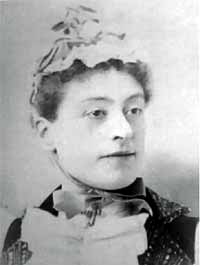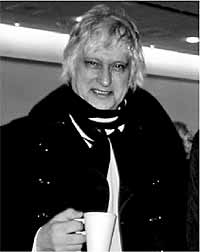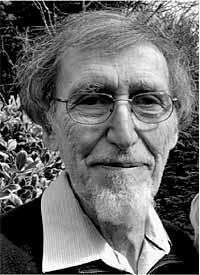News
Thanksgiving service for Ethel Gordon (Bedford) Fenwick

On Friday 20 May I represented the Thoroton Society at a thanksgiving service to celebrate the nursing profession and to commemorate the life of Ethel Gordon (Bedford) Fenwick, nee Manson (1857-1947), the first State Registered Nurse at St Helena’s Thoroton. Because of Covid restrictions the service had been deferred from the International Year of the Nurse, 2020. It was organised by the Ethel Gordon Fenwick Partnership, formed in 2017 to raise her profile. A tribute was given by Dame Professor Judith Ellis OBE. Children from Orston Primary School and Archbishop Cranmer Church of England Primary Academy also took part in the service.
Ethel Manson was born in Scotland in 1857 but by the age of three, following the death of her father and her mother’s marriage to George Storer MP for Nottinghamshire South, she had moved to Thoroton Hall where she was raised. In his address the Rt Revd Paul Williams, Bishop of Southwell and Nottingham, pointed out that as a member of the family of Dr John Storer, Ethel would be familiar with discussions about medical reform. George Storer was Dr John Storer’s grandson. Manson began her nursing career as a probationer at Nottingham Children’s Hospital in 1878 and moved on to Manchester Royal Infirmary in 1879. She then became a sister at London Hospital Whitechapel until 1881 when she moved to St Bartholomew’s Hospital to be Matron. In her time at St Bartholomew’s Manson extended the period of training from two to three years and she fought for better protection of nurses’ professional status. She was also involved in setting up Brighton Home of Rest for Nurses, funded by Princess Christian.
In 1887 Ethel Manson married Dr Bedford Fenwick and had to give up her nursing career. She then began a thirty-year fight for state registration of nurses by founding the British Nurses Association. One of her main opponents was Florence Nightingale. Fenwick was the chief organiser of the World Congress of Nurses in Chicago 1893 and of a huge exhibition of English nursing at the World Fair, for this and a host of other achievements, she was awarded the Princess Helena Gold Medal of Merit for Nurses. Fenwick edited The Nursing Record, a weekly publication which sold for a penny. She founded the Matron’s Council of Great Britain and Ireland in 1894 and was elected Founding President of the International Council of Nurses. The ICN was represented at the commemoration service by its CEO, Howard Catton. In 1895 she gave a paper on the National Value of Organised Labour and Co-operation amongst Women and advocated the formation of a National Council of Women on an American model, which the Penrith Observer describes as a fearsome suggestion. In 1897 Fenwick helped organise and select the first six nurses to nurse wounded insurgents in Crete for Mrs Chant, who wore a uniform in grey and scarlet designed by Fenwick. Following this, the Crown Princess of Greece asked Fenwick to select staff to train nurses at the Ecole Militaire in Athens. In 1901 Fenwick spoke of the desirability of a uniform basis of education and standard of training for nurses. As a representative of registered nurses (not SRN at that time), she attended conferences of the National Union of Women Workers. Fenwick was also editor of The British Journal of Nursing and a campaigning suffragist, devoting columns in the journal to the cause. She became the first State Registered Nurse in 1921. She died in 1947 and is buried in Thoroton churchyard. The service was followed by an excellent buffet and tours of Thoroton Hall.
Jill Oakland
OBITUARIES
DR DAVID MARCOMBE (1947 -2022)

David was well known in local history, circles, a member of the Thoroton Society and of its Council (1984-2008). A native of the northeast he moved to Nottingham in 1980 from Durham where he had completed a PhD under the supervision of Professor David Loades.
David succeeded Dr Alan Rogers in the Department of Art Education. A committed, lively and greatly respected teacher, he soon developed contacts and friends across the East Midlands. He took numerous classes, often returning home late at night (wearing a long woollen scarf for warmth) in one of his many Skodas. David’s research activities coincide with his broader teaching interests, particularly in the medieval period and the English Revolution and its aftermath. His books include Leper Knights: The Order of St Lazarus of Jerusalem and England., c.1150-1544 (Studies in Medieval Religion vol.20). The book uses both documentary and archaeological evidence to provide the first ever account of the little understood crusading order. David was awarded the Order of Merit from the current Order of St Lazarus of Jerusalem at a service in Temple Church in London. David contributed several articles to Thoroton Transactions, and wrote a book on Retford 1520-1642 published by the Department of Art Education. He was Director of the Centre for Local History. This hosted regular Saturday seminars, which brought many local historians on to the Campus. Some of them completed the Certificate in Local History while others were able to bypass the traditional undergraduate route to be accepted for the MA in Local and Regional History, a joint venture set up in 1983 between the departments of History and Adult Education. The context of this degree was the Blake Report of 1981 which had called for greater accreditation. For some years the MA was the first of it kind but eventually fell foul of University politics and the closure of Adult Education. I went of to the VCH in London, and David, after suffering a period of ill health, retired. ‘Retirement should be used carefully. David spent his later years looking after St Edmund’s Chapel at Spital in the Street (north of Lincoln) which he and Ann acquired in 1995.
And at his funeral on 15 July 2022 donations were to the Spital Chantry Trust of St Edmund. He was also a great dowser: armed with a couple of bent coat hangers he would march across fields searching for buried walls. David was a collector, a habitual attender at markets, as well as antique and junk shops. On one occasion a group of M.A. students arrived at Burton Lazars to find a jumble sale in full swing in the village hall. The students drifted into the hall followed by David! I am not sure if it was on that visit to Burton Lazars or another when David was in full flow and a cow approached him from behind. The students and I could see the cow heading for David’s notes, which he had left on a stone. It was hard to know what to do, but my memory is that the cow ate the notes without interrupting the lecture! There were many similar incidents. David lived in Newark during his time at the University. He met Ann in 1985 when she attended one of his courses at the Horncastle conference centre. David is survived by her, by her daughter Katie and two grandchildren Henry and Winnie.
John Beckett
THEODORE (TED) BELCHER

I first met and worked with Ted Belcher many years ago when I was a pharmacist at the Nottingham General Hospital, where Ted was a consultant haematologist. I am indebted to his widow Arville for the following information on Ted’s life and work.
Ted was born in 1932 in Johannesburg and studied medicine at Witwatersrand University. He and Arville got married in 1960 - the day before the Sharpeville massacre, when 69 peaceful demonstrators were shot by police as they were running away! It was then that Ted decided that South Africa was not a great place to live and bring up children, so we arrived in the UK in October of that year. We started off in London and then moved to Leeds and Bristol as Ted moved up the NHS ladder- eventually getting a consultancy in Nottingham in 1968 where he worked at the General Hospital while the QMC was being built.
He was a man of many talents - an exceptional artist and an accomplished musician, not only as a pianist but as a composer! He loved playing squash and other racquet sports and then in later life golf and croquet. His interest in astronomy and archaeology led him to being a member of Astronomical Society and the Thoroton Society. He was also interested in languages and could speak fluent Afrikaans, French and Spanish. He also learnt Russian while his Grandson lived for a while in Russia. Ted was a very practical man who could turn his hand to any repairs or maintenance (which is witnessed to their garage which includes any tool or gadget anyone would require.
John Wilson